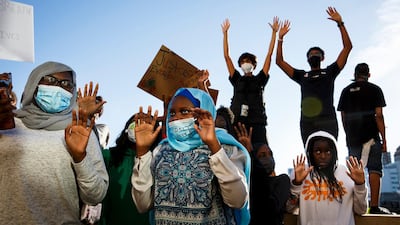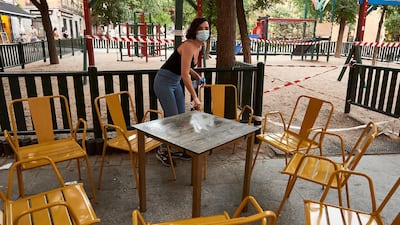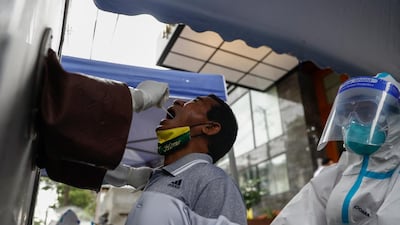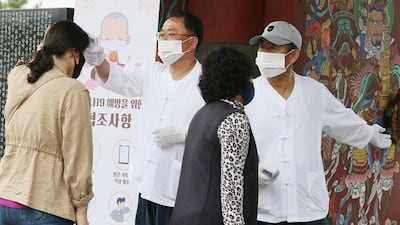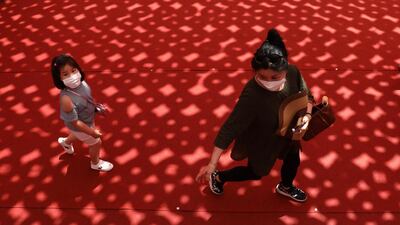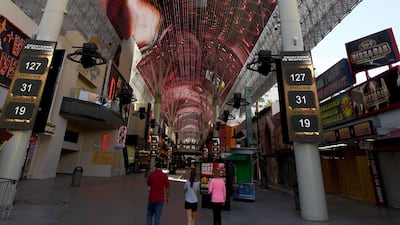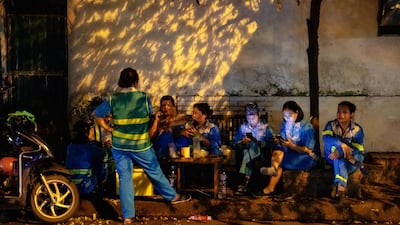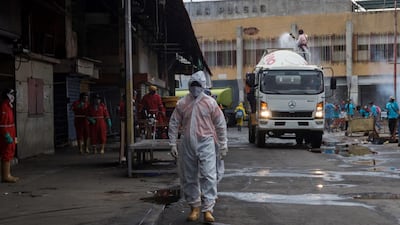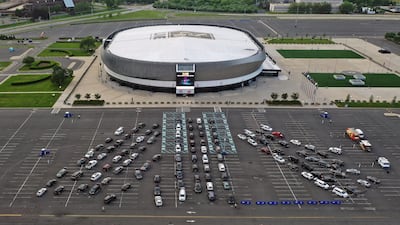Akazuba, Ikizere and Ngabo are part of the treatment team at Rwanda's Kanyinya Covid-19 treatment facility, a short distance from the capital Kigali, but they are no ordinary healthcare workers.
The three robots carry out simple tasks like taking temperatures and monitoring patients to help minimise the exposure of doctors and nurses to the coronavirus.
White with big bright blue eyes and a rather human appearance, the robots were donated by the United Nations Development Programme (UNDP) and developed by Belgium-based Zorabots.
Together with two other robots at the Nyamata Covid-19 treatment centre in south-east Kigali, they are helping frontline workers tackle the coronavirus crisis in the East African nation which so far has 355 confirmed cases of the disease.
"The three robots that we have are part of the treating team," said David Turatsinze, a doctor at the 75-bed Kanyinya centre, which housed 65 patients when the Reuters team visited.
By relaying messages to doctors and helping the team assess the effectiveness of their clinical decisions, the robots cut the number of bedside visits that doctors have to make.
Francine Umutesi, a bio-medical engineer who works as a health technology operations specialist at the ministry of health, said the robots were a first for Africa and had the potential to offer even more support to medical teams.
"It doesn't remove the tasks the doctors are supposed to do, it's just complementing their efforts," she said.
Rwanda already uses drones to deliver blood and enforce restrictions designed to slow the spread of Covid-19.
Fabrice Goffin, joint chief executive of Zorabots, said his robots had been in hospitals, care homes and hotels since 2013, but had found a new role with the coronavirus pandemic.
They have been deployed at the Antwerp University Hospital in Belgium, where they take the temperature of arriving patients and make sure they are wearing a mask correctly, before gauging the likelihood and severity of infection and directing them to the appropriate part of the clinic.
"If the patient or visitor has a temperature or a mask that is not correctly worn, the screen will show: 'You have a problem, you can not go into the hospital like that'," said Dr Michael Vanmechelen, manager of the hospital's operating theatres.
"You have to check with an employee of the hospital nearby. So the robot is never going to work alone, it's always in support of an employee who works there," he said.
"The big advantage of this robot relative to a fixed terminal is that the robot can move, can go towards people, can speak to people and speak in their native tongue," said Mr Goffin. "It speaks more than 53 languages."
_______________
Coronavirus around the world
_______________
Jan Bussels, head of digitopia, which developed the software and interface, said the robot was designed to help take over repetitive work and allow over-stretched medical staff to focus on their core job as care givers. The robot was also able to learn on the job, he said.
The robots, typically costing €30,000 (Dh122,360), have also been sold to clinics in France, the Netherlands and the United States.
Rwandan officials said the robots could be programmed to carry out additional tasks in future.
"In the future if they are programmed to take even blood pressure and the [blood] sugar, that definitely would be so helpful," said Dr Turatsinze.








